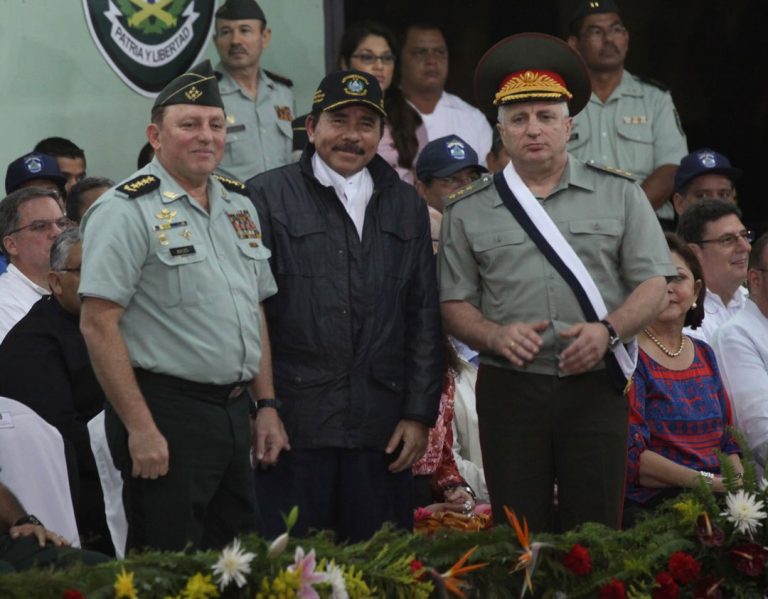14 de junio 2016

Children of Exile: The Births “Sowing Hope” in the Camp of Nicaraguan Farmers

PUBLICIDAD 1M
PUBLICIDAD 4D
PUBLICIDAD 5D
Ortega legitimizes the right to rebellion and civic protest, as the only way to restore democracy

In the 2008 municipal elections, domestic election observers presented documentary evidence of fraud which favored the FSLN in at least 40 of Nicaragua’s 153 municipalities - including the capital. In the 2011 presidential and general elections, the European Union’s mission emphasized the “lack of transparency” which allowed the government’s party to take control of two thirds of parliament.
Now, by once again taking to the ballot box, Ortega is trying to establish a precedent where his political regime no longer needs clean, transparent and competitive elections in order to validate their rule, and has declared that independent election monitoring services will not be allowed.
Democracy’s last slap in the face came via the Supreme Court, which is controlled by Ortega’s party magistrates. The court issued a resolution which took away the legal representation of the opposition alliance under the Independent Liberal Party.
The ruling goes much further than that and voids a party convention where the opposition ratified their Presidential formula a week before. As a result, the November 6 national elections won’t only not be free nor transparent, but they’ll also cease to be competitive, as the opposition won't be represented at the polls nor in the candidates up for election.
In an extremely dangerous move which relives the history of the Somoza dictatorship in the 20th century, Ortega closes the political space to any real opposition, giving way to “collaborationist” loyal opposition parties in order to institutionalize his hegemonic party’s regime.
Why liquidate the opposition and cancel electoral observation at a time when Ortega’s rule isn’t is crisis and they’ve even managed to broaden their political base, combining tactics of political patronage, co-optation and repression, in a climate of economic stability and political authoritarianism? Only Ortega and his co-ruling wife, Rosario Murillo, can answer that question. What’s left is the undisputed fact that we’re currently seeing a consolidation of authoritarianism by indefinite reelection, even though the electoral process holds no legitimacy.
The only thing we can celebrate is that, from now on, the political debate has taken off its mask and no longer hides behind subterfuge: while Ortega openly wagers to continue consolidating his regime as a family dynasty and dictatorship.
The opposition now faces the challenge of calling upon the Nicaraguan people to fight against corruption, unemployment, the lack of opportunities, repression and reelection. We have yet to see if the opposition alliance will be able to develop a successful alternative project which will create hope amongst the vast majority of poor and excluded Nicaraguans. However, the only thing we know for sure is that moving the country out of this dilemma no longer resides in international bodies or donor communities, but in the people themselves.
By making the electoral process illegal and by closing off political space to the opposition, Ortega also legitimizes the right Nicaraguans have to rebel and struggle in civil protest, as the only way to reestablish democracy.
This article has been translated from Spanish by Havana Times.
Read the original version here.
Archivado como:
PUBLICIDAD 3M
Periodista nicaragüense, exiliado en Costa Rica. Fundador y director de Confidencial y Esta Semana. Miembro del Consejo Rector de la Fundación Gabo. Ha sido Knight Fellow en la Universidad de Stanford (1997-1998) y profesor visitante en la Maestría de Periodismo de la Universidad de Berkeley, California (1998-1999). En mayo 2009, obtuvo el Premio a la Libertad de Expresión en Iberoamérica, de Casa América Cataluña (España). En octubre de 2010 recibió el Premio Maria Moors Cabot de la Escuela de Periodismo de la Universidad de Columbia en Nueva York. En 2021 obtuvo el Premio Ortega y Gasset por su trayectoria periodística.
PUBLICIDAD 3D